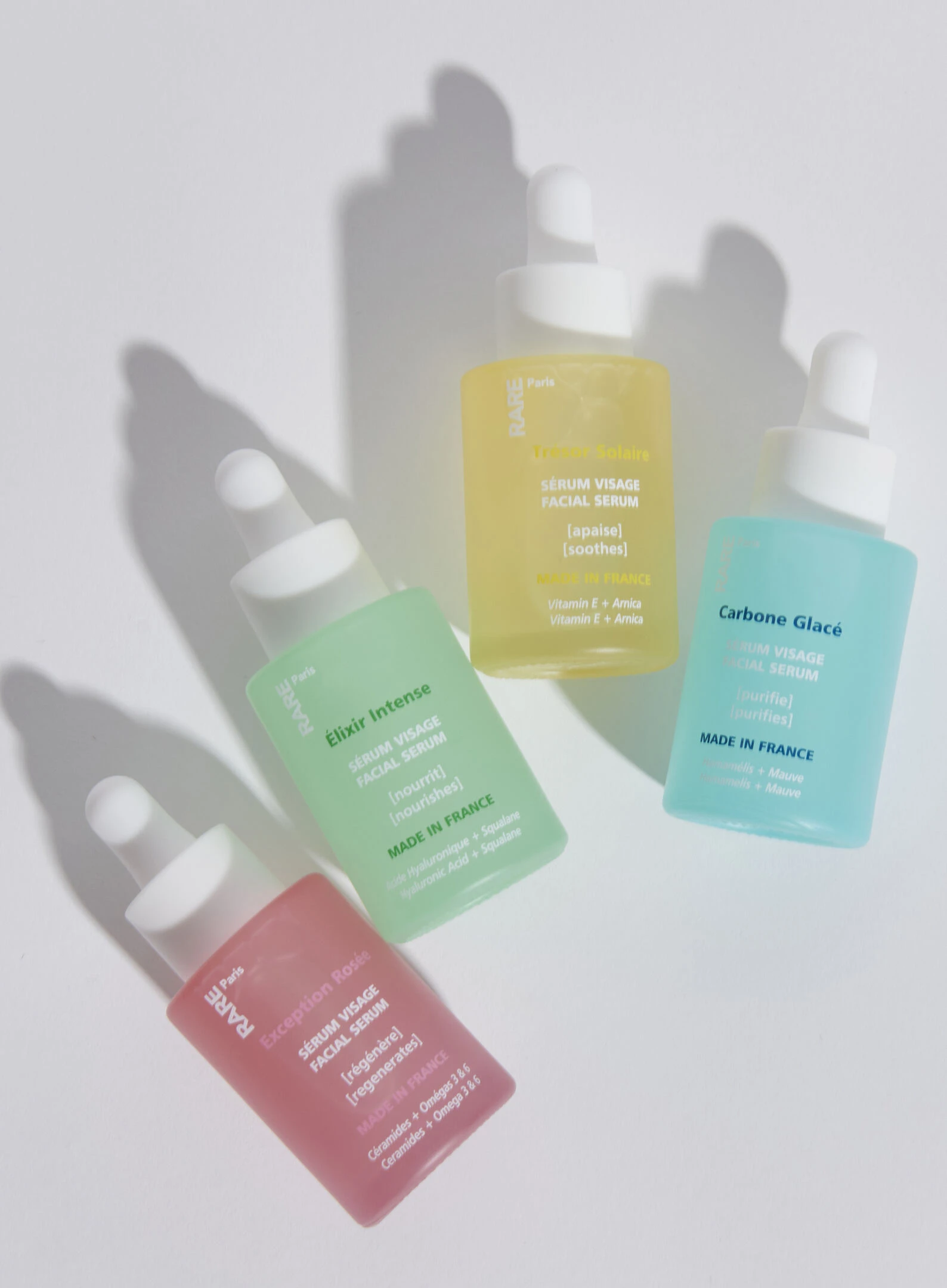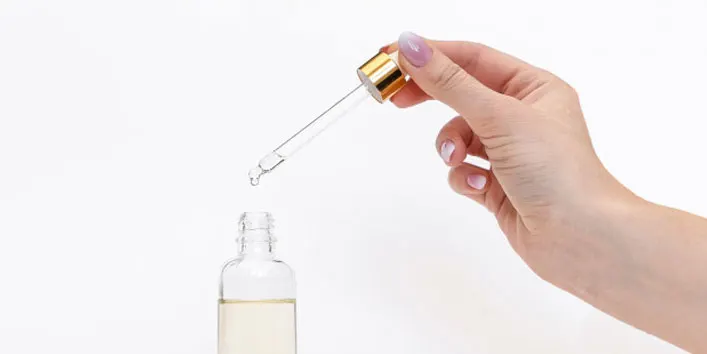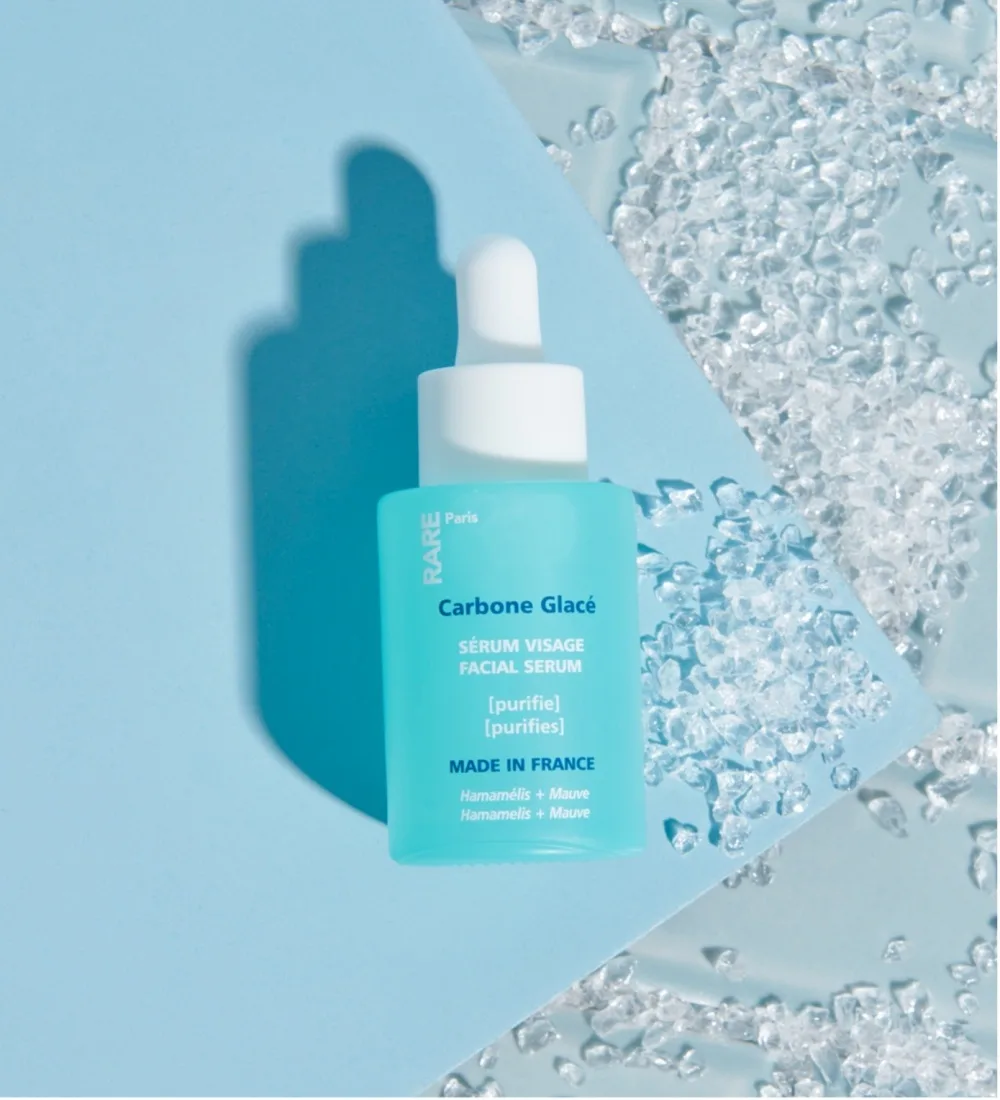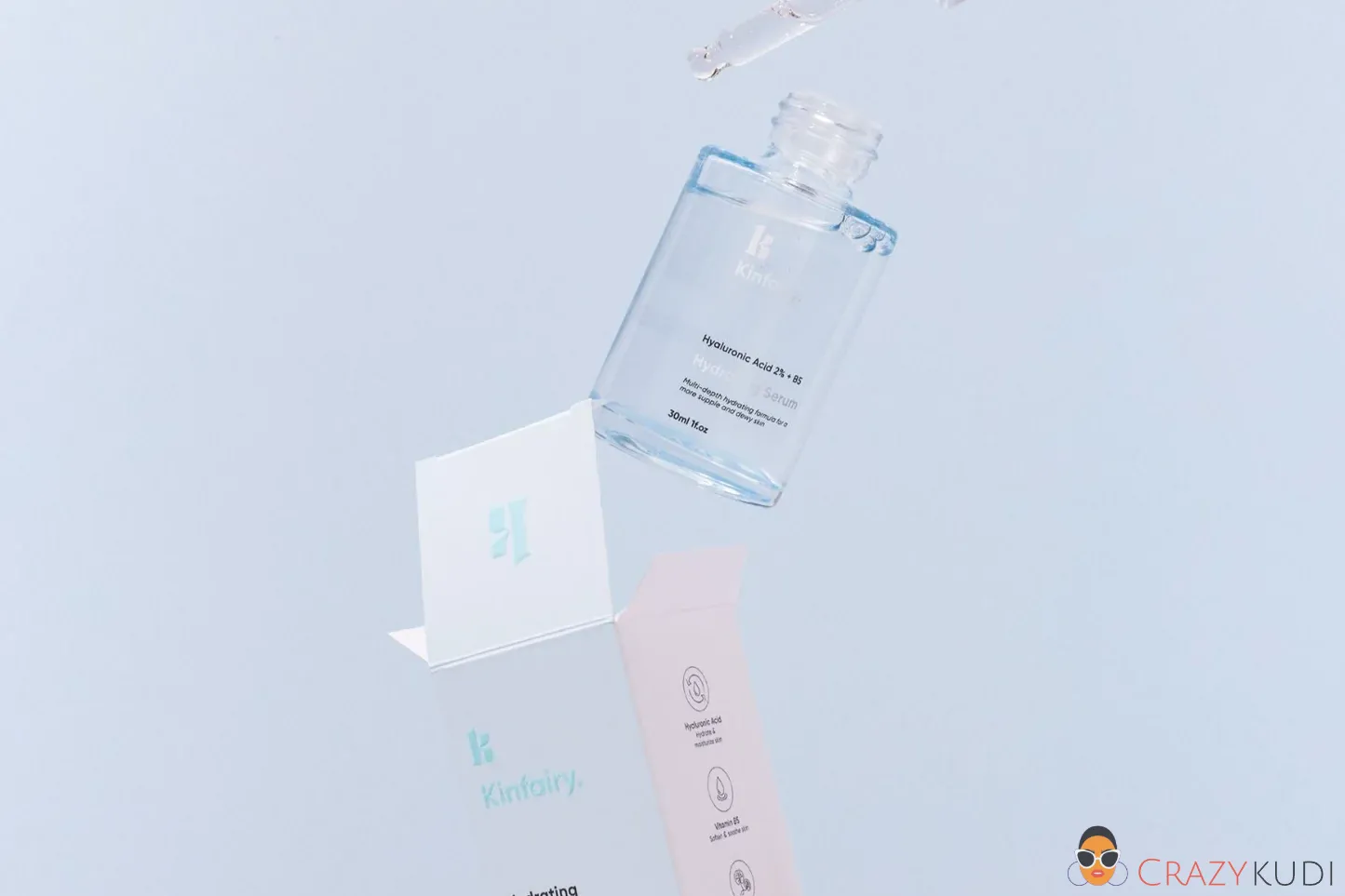The Ultimate Guide to Face Serums for Oily Skin
Dealing with oily skin can be a daily challenge. The excess sebum production leads to that dreaded midday shine, enlarged pores, and often contributes to acne breakouts. While it might seem counterintuitive to add more products to already oily skin, using the right face serum for oily skin can transform your complexion and address these concerns at their source.
Face serums are lightweight, concentrated formulations designed to deliver active ingredients deep into the skin. Unlike moisturizers, serums for oily skin are typically water-based rather than oil-based, making them perfect for those with overactive sebaceous glands. The right skin serum for oily skin can control oil production, minimize the appearance of pores, and address specific concerns like acne and hyperpigmentation.
Understanding Oily Skin
Before diving into the best serums for oily skin, it's important to understand what causes oily skin in the first place:
- Genetics: Family history plays a significant role in determining your skin type
- Hormonal fluctuations: Puberty, menstruation, pregnancy, and stress can trigger increased oil production
- Climate: Hot, humid environments can stimulate sebaceous glands
- Inappropriate skincare: Using harsh products that strip the skin can lead to rebound oil production
- Diet: High-glycemic foods may increase sebum production in some individuals
- Enlarged pores: Naturally larger pores produce more sebum
- Dehydration: Skin that lacks water produces more oil to compensate
Oily skin isn't all bad news—it typically ages more slowly than dry skin and has natural moisture that keeps it plump. The key is managing the excess oil while maintaining your skin's protective barrier.
Why Oily Skin Needs Face Serums
Many people with oily skin mistakenly believe they should skip serums entirely. However, serums for oily skin serve several crucial functions:
- Targeted treatment: Face serums deliver concentrated active ingredients that address specific concerns like excess oil production.
- Balancing hydration: The right skin serum for oily skin provides water-based hydration without additional oils.
- Barrier repair: Many serums strengthen the skin barrier, which can be compromised by harsh anti-oil cleansers.
- Prevention: Regular use of appropriate face serum for oily skin can prevent future breakouts and control sebum production.
- Lightweight texture: Serums are non-greasy and absorb quickly, making them ideal for oily complexions.

Key Ingredients to Look for in Face Serum for Oily Skin
When shopping for a face serum for oily skin, look for these powerhouse ingredients:
Salicylic Acid (BHA)
This oil-soluble acid penetrates into pores to dissolve excess sebum and dead skin cells. It's one of the most effective ingredients in any serum for oily skin, helping to prevent acne and minimize pore appearance.
Niacinamide (Vitamin B3)
Studies show niacinamide can reduce sebum production by up to 54% when used consistently. It also strengthens the skin barrier, reduces inflammation, and helps fade dark spots, making it a multi-tasking hero in any skin serum for oily skin.
Hyaluronic Acid
Contrary to what many believe, oily skin still needs hydration. Hyaluronic acid provides oil-free moisture that keeps skin balanced without adding shine, preventing the skin from overproducing oil to compensate for dehydration.
Retinol/Retinoids
These vitamin A derivatives increase cell turnover, preventing dead skin cells from clogging pores. They also regulate oil production over time, making them excellent for long-term management of oily skin.
AHAs (Glycolic Acid, Lactic Acid)
These water-soluble acids exfoliate the skin's surface, removing the dead skin cells that can mix with oil and clog pores. They're excellent in any face serum for oily skin, helping to improve texture and tone.
Tea Tree Oil
This natural antibacterial ingredient helps control acne-causing bacteria without over-drying the skin, making it a gentle addition to serums for oily skin.
Zinc
This mineral helps regulate oil production and has anti-inflammatory properties, making it beneficial in a face serum for oily skin prone to breakouts.
Vitamin C
This antioxidant not only brightens the skin but also helps regulate sebum production and reduce inflammation, making it an excellent ingredient for a serum for oily skin.
Green Tea Extract
Rich in polyphenols and catechins, green tea extract has anti-inflammatory properties and helps control sebum production, making it invaluable in a face serum for oily skin.
Aloe Vera
With its soothing and hydrating properties, aloe vera provides oil-free moisture while calming irritation, perfect for a skin serum for oily skin.
Ingredients to Avoid in Serums for Oily Skin
Just as important as knowing what to look for is understanding what to avoid:
- Heavy oils: Coconut oil, mineral oil, and other comedogenic oils can clog pores
- Alcohol-heavy formulas: While they feel temporarily matte, they can trigger more oil production
- Silicones: Some silicones can trap oil and bacteria, worsening breakouts
- Fragrance: Can irritate skin and cause inflammatory responses that increase oil production
- Lanolin: Often too heavy for oily skin types

How to Choose the Right Face Serum for Oily Skin
With countless options available, selecting the perfect serum for oily skin can be overwhelming. Here's how to narrow down your choices:
- Consider your specific concerns: Beyond oiliness, are you dealing with acne, hyperpigmentation, or signs of aging? Look for a serum that addresses multiple concerns.
- Check the formulation: The best face serum for oily skin should be labeled "oil-free," "non-comedogenic," or "non-acnegenic."
- Start with a lower concentration: If you're new to active ingredients like retinol or acids, begin with a lower percentage to allow your skin to adjust.
- Layer properly: Apply your skin serum for oily skin after cleansing and toning but before moisturizing for maximum effectiveness.
- Don't skip moisturizer: Even with oily skin, you need a lightweight moisturizer after your serum to seal in the active ingredients.
- Consider skin sensitivity: If you have sensitive and oily skin, look for serums without potential irritants like fragrance or essential oils.
- Check for transparent ingredient lists: Reputable brands clearly list all ingredients and their concentrations.
Addressing Specific Concerns with Face Serum for Oily Skin
Different serums target different aspects of oily skin concerns:
For Acne-Prone Oily Skin
Look for serums containing salicylic acid, tea tree oil, and niacinamide. These ingredients fight bacteria, reduce inflammation, and prevent clogged pores.
For Enlarged Pores
Serums with retinol, niacinamide, and AHAs help tighten pore appearance by increasing cell turnover and strengthening the skin around pore openings.
For Post-Acne Marks
A vitamin C-rich serum for oily skin can help fade hyperpigmentation while providing antioxidant protection.
For Dehydrated Oily Skin
Hyaluronic acid and glycerin-based serums provide water-based hydration without adding oils, helping to normalize sebum production.
For Aging Oily Skin
Look for serums containing peptides, antioxidants, and gentle retinol to address fine lines while controlling oil.
Also read: Face Serum for Dry Skin: A Complete Guide
Morning vs. Night Serums for Oily Skin
The time of application matters when it comes to face serums for oily skin:
Morning Serums:
- Focus on antioxidants like Vitamin C to protect against environmental damage
- Use lightweight hydrating ingredients like hyaluronic acid
- Look for oil-control ingredients like niacinamide and zinc
- Consider mattifying serums with silica or clay
- Always follow with a non-comedogenic sunscreen
Night Serums:
- Incorporate active ingredients like retinol and exfoliating acids
- Use slightly more intensive treatments that work while you sleep
- Consider serums with soothing ingredients to reduce inflammation
- Look for ingredients that support the skin's natural repair processes

How to Apply Face Serum for Oily Skin
The application method matters as much as the product itself:
- Cleanse thoroughly: Remove all dirt, makeup, and excess oil with a gentle foaming cleanser.
- Tone (optional): Use an alcohol-free toner to balance pH levels.
- Apply serum: Use 3-4 drops for the entire face—overuse can lead to pilling.
- Pat, don't rub: Gently press the serum into the skin rather than vigorously rubbing.
- Wait before moisturizing: Allow the serum 30-60 seconds to absorb.
- Apply moisturizer: Seal with a lightweight, oil-free moisturizer.
- Add sunscreen (morning): Always finish morning routines with SPF 30+ protection.
Common Mistakes When Using Face Serum for Oily Skin
Even with the best intentions, there are several pitfalls that can make your serum less effective:
- Overusing actives: Using too many potent ingredients can irritate the skin and increase oil production
- Skipping moisturizer: This can cause your skin to produce more oil to compensate
- Using too much product: A pea-sized amount of serum is typically sufficient
- Not giving products enough time: Serums take time to show results, typically 4-6 weeks
- Using incompatible ingredients: Some ingredients shouldn't be used together (e.g., retinol and AHAs)
- Applying in the wrong order: Serums should go on clean skin before heavier products
- Overexfoliating: Too many acid serums can compromise the skin barrier
DIY Face Serum for Oily Skin
If you're interested in creating your own skin serum for oily skin, here's a simple recipe:
Ingredients:
- 1 tablespoon aloe vera gel (soothing, hydrating)
- 3-4 drops tea tree essential oil (antibacterial)
- 2 drops niacinamide powder dissolved in 1 teaspoon distilled water
- 1/4 teaspoon vegetable glycerin (humectant)
- 2-3 drops green tea extract (antioxidant)
Instructions: Mix all ingredients in a small dark glass bottle. Apply a small amount to clean skin morning and evening before moisturizer. Store in the refrigerator and use within 1-2 weeks.
While DIY options can be fun, professionally formulated serums for oily skin often contain more stable and effective concentrations of active ingredients.
The Science Behind Face Serums for Oily Skin
What makes face serum for oily skin so effective is their molecular structure. Serums contain smaller molecules that can penetrate deeper into the skin compared to moisturizers. This allows active ingredients to target the sebaceous glands directly, helping to regulate oil production at its source.
Research shows that consistent use of appropriate serums can:
- Reduce sebum production by 17-54% (depending on ingredients)
- Decrease pore size visibility by up to 20%
- Improve overall skin texture and reduce breakouts by 40%
- Strengthen the skin barrier function by up to 30%
- Decrease transepidermal water loss, keeping oily skin properly hydrated

Seasonal Adjustments for Your Skin Serum for Oily Skin
Even if you have oily skin year-round, you may need to adjust your serum selection seasonally:
Summer:
- Focus on lightweight, mattifying serums
- Increase use of salicylic acid to keep pores clear
- Consider using a separate antioxidant serum for UV protection support
- Look for serums with cooling ingredients like cucumber or aloe
Winter:
- Add more hydrating ingredients like hyaluronic acid
- Reduce frequency of exfoliating acids if skin becomes sensitive
- Consider adding a lightweight facial oil at night (yes, even for oily skin)
- Look for serums with barrier-strengthening ingredients
Multi-Masking and Serum Cocktailing for Oily Skin
Those with combination-oily skin often benefit from using different serums on different areas:
- T-zone: Use mattifying serums with salicylic acid
- Cheeks: Apply hydrating serums with hyaluronic acid
- Chin/Jawline: Apply anti-inflammatory serums with niacinamide (especially for hormonal breakouts)
- Under eyes: Use lightweight peptide serums for this delicate area
When to See a Dermatologist
While face serum for oily skin can work wonders, persistent issues may require professional help. Consider seeing a dermatologist if:
- Your skin remains excessively oily despite using appropriate products
- You experience severe or cystic acne that doesn't respond to over-the-counter treatments
- Your skin shows signs of hormonal imbalance (e.g., oily T-zone with breakouts along the jawline)
- You develop irritation or allergic reactions to skincare products
- Your oiliness suddenly worsens without explanation
A dermatologist can recommend medical-grade skin serum for oily skin or prescribe treatments that address the root cause of excessive oil production.
Conclusion
Finding the perfect face serum for oily skin might take some experimentation, but the results are worth it. The right serum can transform your skin from perpetually shiny and breakout-prone to balanced and clear. Remember that consistency is key—use your serum daily, and give it time to work.
Whether you choose a niacinamide-rich formula to regulate sebum production, a salicylic acid serum to keep pores clear, or a hydrating option to balance oil production, the best serum for oily skin is one that addresses your specific concerns while respecting your skin's natural barrier.
With the information in this guide, you're well-equipped to make informed decisions about which face serum for oily skin deserves a spot in your skincare routine. Your journey to balanced, healthy skin starts with understanding your skin's needs and choosing products that work with, not against, your natural skin biology.

